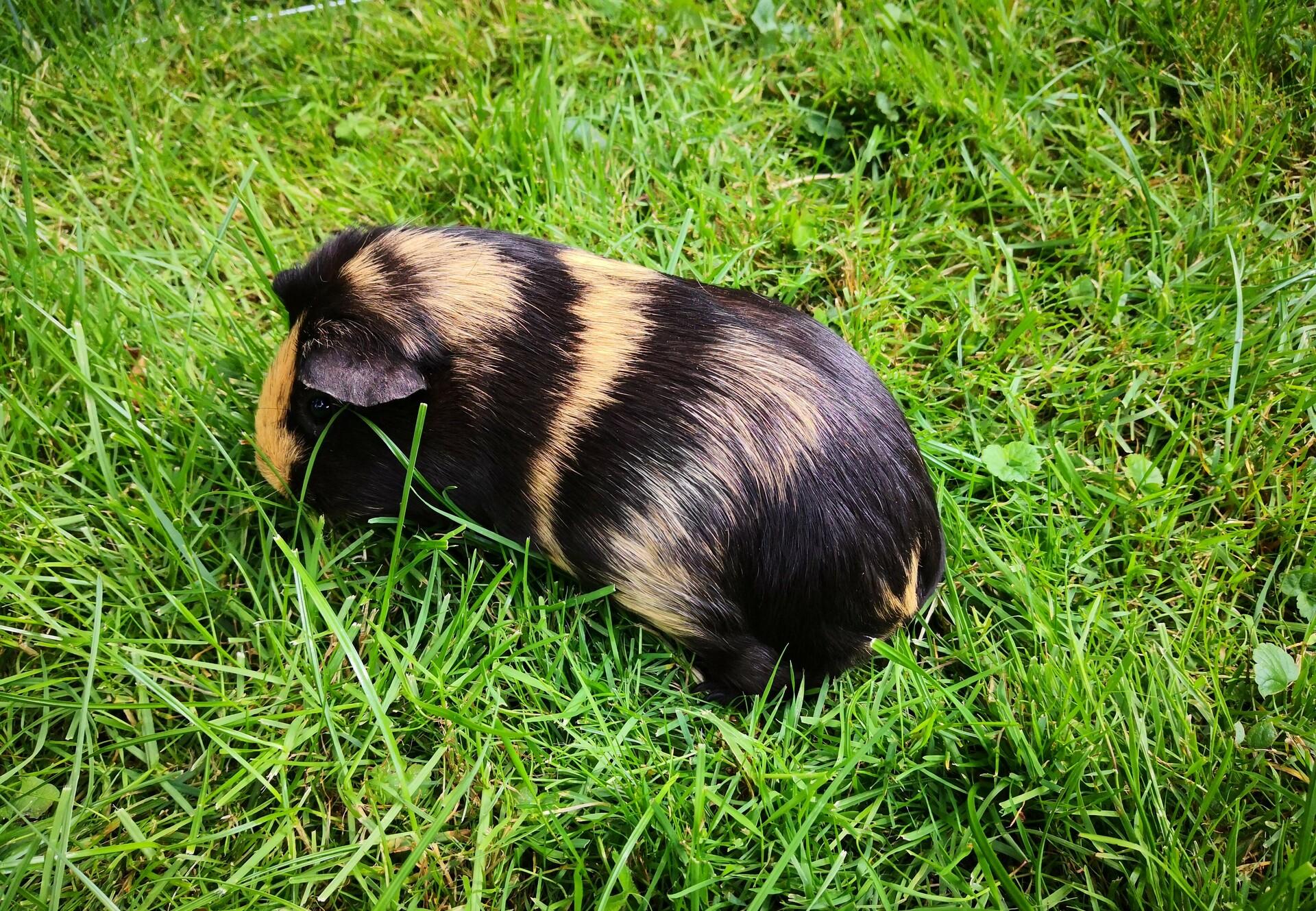
Guinea Pigs – Their most common Illnesses
Guide for guinea pig owners: Guinea pigs are generally robust animals. However, certain illnesses tend to affect them more often than others
Owners should be aware of the common illnesses guinea pigs are prone to, so they can recognise and deal with them early on.
Every guinea pig is unique, so the five most common illnesses may manifest themselves in different ways. The important thing is to look out for anything unusual about your little friend, such as changes in feeding behaviour or pooping, hair loss, swellings and scratching.
The six most common illnesses
1. Stomach and digestion problems: A healthy guinea pig eats and poops normally. If they won’t touch their food, or is pooping less than usual or not at all, you need to find out why. Possible causes include an incorrect diet, dental problems, a change of diet that was too abrupt, or a viral infection.
Preventive measures:
- Give your guinea pigs food containing lots of fibre
- Give them plenty of moist food and hay
- Avoid changing their diet too abruptly
- Regular dental checks
2. Skin problems: Guinea pigs are susceptible to fungal infections. Some guinea pigs can be carriers, without showing symptoms themselves. Illness may break out if triggered by negative factors such as insufficient feeding, incorrect keeping or stress caused by the presence of too many other guinea pigs. It’s usually the face, head and ears that are affected, but infection may also spread to the back and legs. Those places will itch, and the guinea pig’s scratching will cause it to lose hair and usually develop scabs. Fungal infections can be passed on to other guinea pigs and humans.
Preventive measures:
- Check very regularly for skin problems
- Keep the humidity of the air at a healthy level
- Keep stress levels to a minimum
3. Parasites: Fleas, lice and mites commonly affect guinea pigs. While fleas and their faeces, as well as lice and their eggs, are easy to spot on the skin and in the fur, mites can only be diagnosed under the microscope. Symptoms of parasite infestation usually include itching and vigorous scratching, leading to bald patches and crusted skin. The affected guinea pig may have picked up the parasites from other animals, or even from its bedding.
Preventive measures:
- Balanced diet
- Proper hygiene in the cage or enclosure
- Every new case of parasites should be examined and treated
- Regular checks for parasites
- Parasite remedies (in consultation with the vet)
- Keep stress to a minimum (if necessary, change the composition of the group to reduce conflict)
4. Infections of the uterus and ovaries: Guinea pigs frequently suffer from infections of the uterus and ovaries, including ovarian cysts and various cancers.
Preventive measures:
- An ovariohysterectomy (removal of the ovaries and a large part of the uterus) can prevent such infections, but this decision must only be taken in consultation with the vet.
5. Respiratory problems: Guinea pigs can easily develop infections of the upper respiratory tract, which in the worst cases can become lung infections. These can be picked up from or passed on to other animals and can be triggered by stress.
Preventive measures:
- Keep the cage or enclosure clean
- Keep stress to a minimum (moderate noise levels, no unnecessary handling)
- Bedding should not be dusty
- Avoid draughts in the enclosure
- Keep guinea pigs away from sick animals
- Wash your hands before touching the guinea pig
- Balanced diet
6. Urinary tract problems: Guinea pigs are very susceptible to urinary stones. These usually build up in the bladder but may occur in the kidneys. They can also gather in the ureter or the urethra, which may be life-threatening. Symptoms include blood in the urine or difficulty in urinating, which may make the guinea pig hunch up or cry out. If there is a complete blockage, the guinea pig won’t be able to urinate at all – this requires urgent treatment.
Preventive measures:
- Balanced diet
- Always provide fresh water that is low in calcium ('soft' water), in clean drink bottles
- Always keep the cage or enclosure clean, with dry bedding
- Keep the fur around the animal’s rear end short – this will help it to stay dry
